Using eggs in the garden – 5 ways to use their nutrients in your flower beds
Eggs are the organic way to limit weeds and nourish your flowers – here’s how to enjoy their benefits in the garden
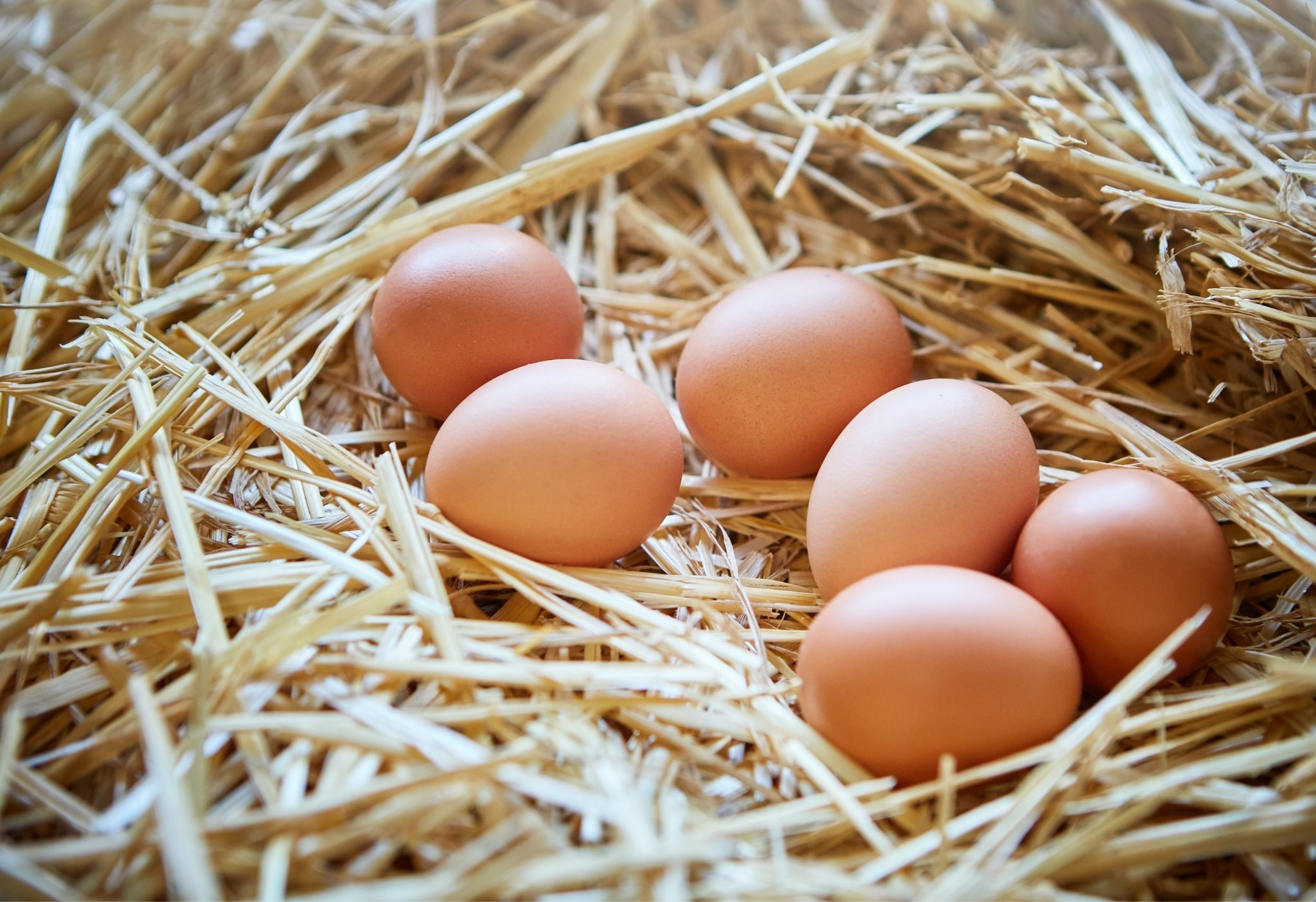

Whether dealing with weeds, pests, or just looking for an organic way to nourish your plants – using eggs in the garden is the perfect solution.
While eggs are a popular staple in many of our diets, it is less common to consider what we do with waste, such as eggshells or out-of-date produce. However, experts are urging us to take them out of your kitchen trash and into the forefront of your garden ideas, where we can enjoy a host of benefits beyond their expiry because eggshells are good for plants.
Using eggs in the garden – 5 ways to take their natural benefits outside
While we wouldn't suggest that you should expect miracles from your old eggshells, you can use them to deter pests and nourish your flower bed ideas.
'Eggs can be used in many ways in the garden. They can be added to compost bins to add nutrients,' says garden landscaper Melody Estes from The Project Girl. 'They can be used as organic fertilizer by mixing them with dirt or sand and adding them around your plants.' Plus, if you're wondering how to add calcium to soil, this staple experts suggest using crushed egg shells to balance your soil's pH and promote healthy plant growth.
And, their benefits don't end there Here's everything you need to know about their organic power.
1. Add crushed eggshells in your soil
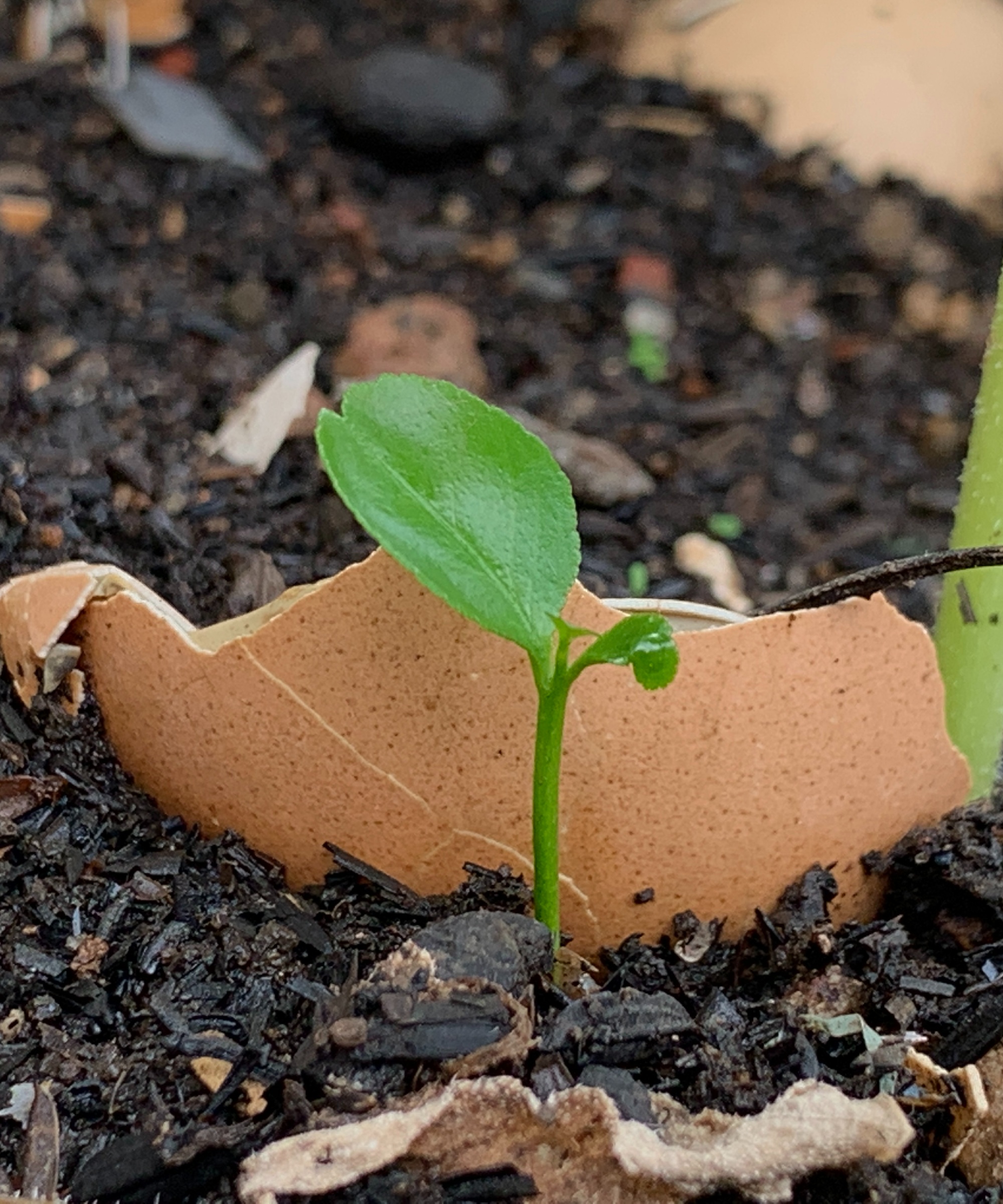
Perhaps the most common way to use eggs in your garden is through eggshells in your soil. These shells contain calcium, as well as traces of other elements, including magnesium and phosphorus – great for adding nutrients to your soil and compost.
Having said that, most soil in North America is already rich in calcium, so you may not need to add any more. Also, if you add egg to acidic soil, then the calcium won't be absorbed by your plants. In fact, you may end up with excess nitrogen in your soil, which will do more harm than good. Therefore, it is worth doing a simple PH check of your soil to see whether you should be adding eggs.
Sign up to the Homes & Gardens newsletter
Design expertise in your inbox – from inspiring decorating ideas and beautiful celebrity homes to practical gardening advice and shopping round-ups.
2. Using eggs to prevent blossom end rot
Some people recommend adding eggs to the base of plants prone to blossom end rot, especially tomatoes and zucchini. However, what people don't know is that blossom end rot mainly affects first-year blossoms.
If you're still experiencing problems the second year in, then it's time to give eggshells a chance to do their calcium-enhancing magic. You can also try companion planting to reduce all kinds of problems with tomatoes and other plants.
3. Using eggshells as mulch
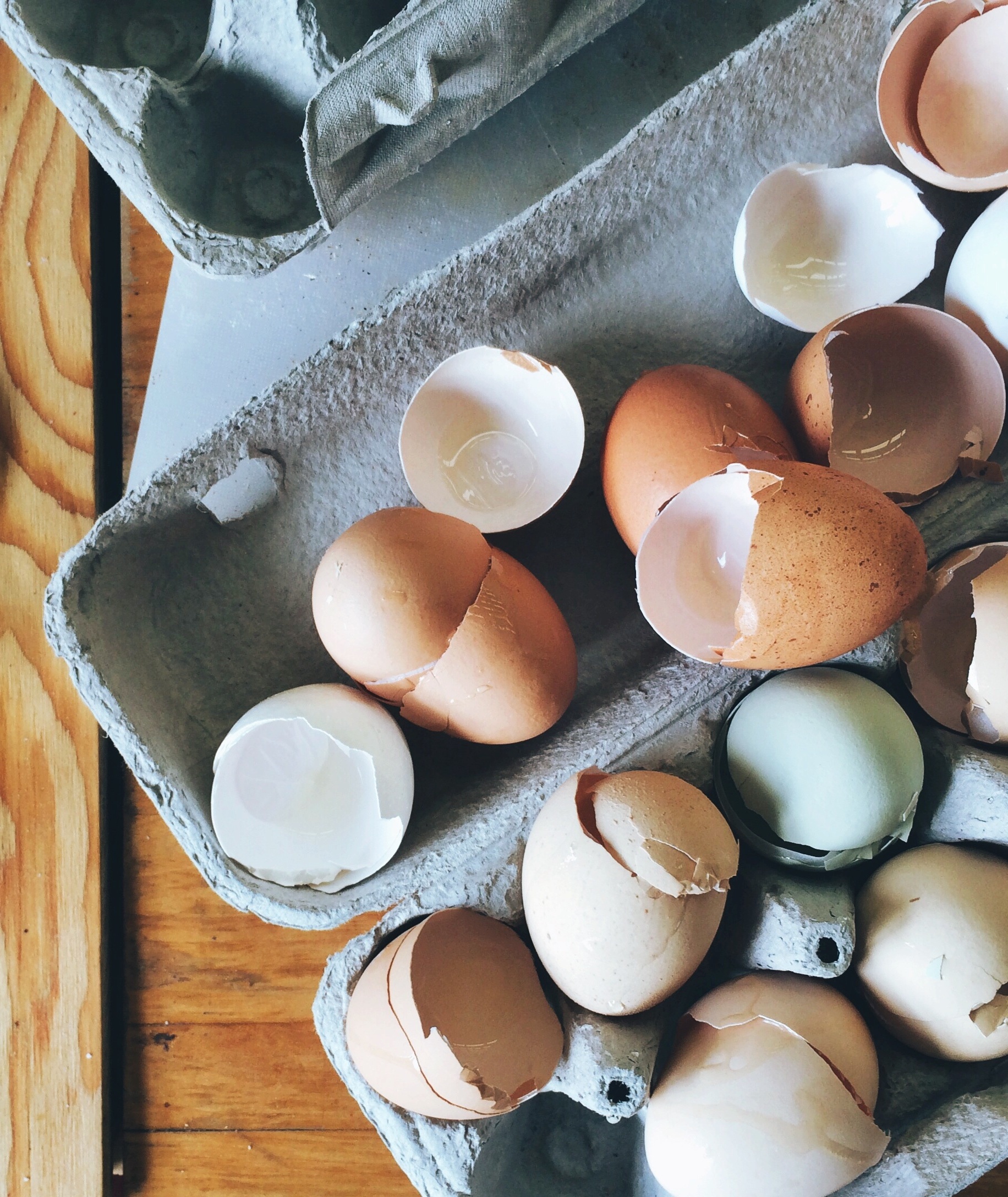
Eggshells make for excellent mulch, helping plants retain moisture and repel weeds. You do need quite a lot of eggshells to make enough mulch, though, so you will need to get whipping up those cakes and omelets to build up a large enough store of shells.
4. Using eggs to deter pests
Opinion is divided on whether eggshells repel slugs, beetles, and other insects you don't want near your plants. The mechanism with repelling slugs is clear enough: the sharp edges of crushed eggshell cut slugs, so they avoid them.
In reality, this only works if your eggshells stay dry. Watering and rain will both interfere with this hack from working – so it is one to try on dry days or try another method instead.
5. Using eggshells to feed wild birds
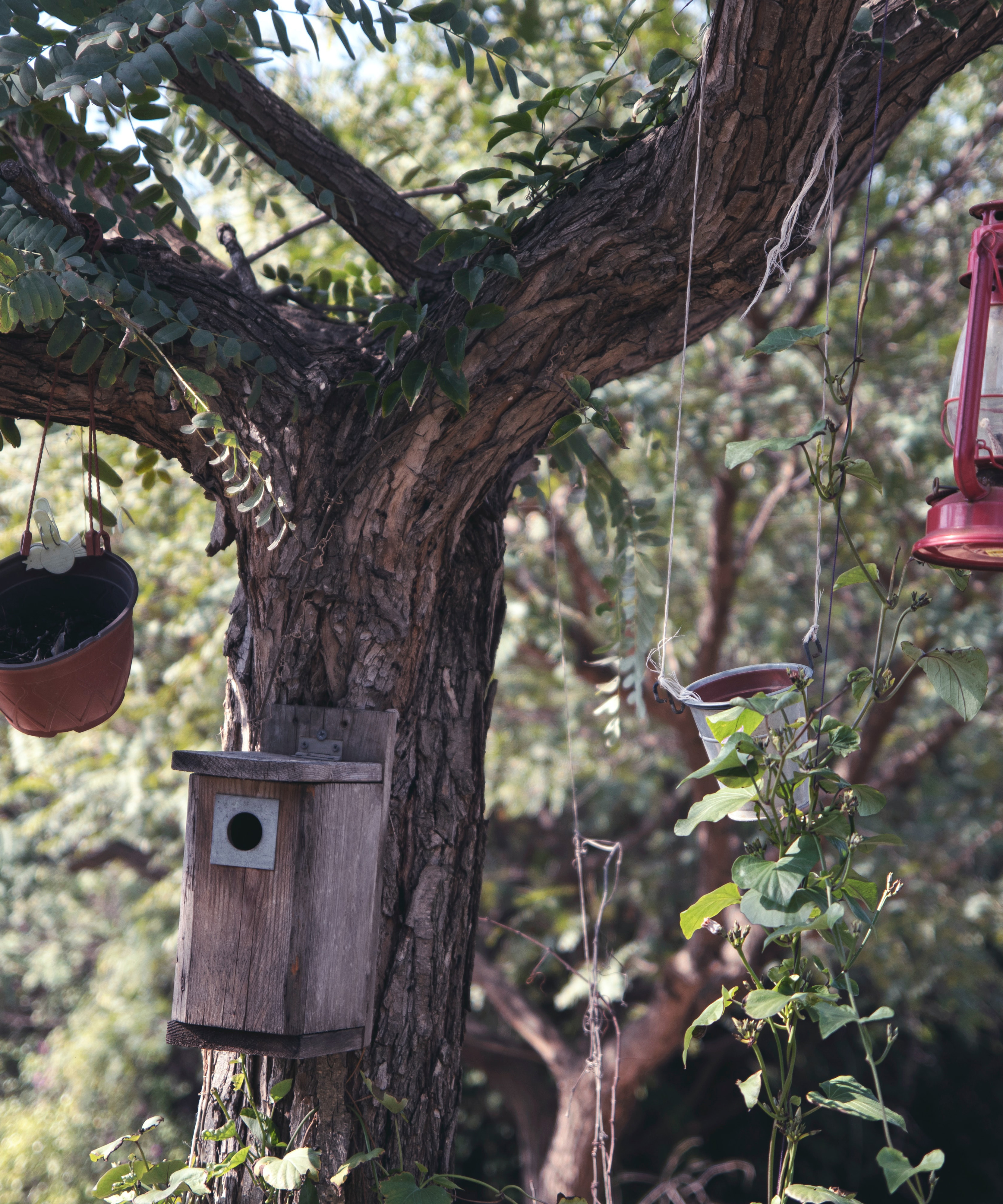
This is arguably the best use of eggs in the garden. Wild birds that visit our gardens are often calcium-deficient and will eat small bits of crushed eggshells as a supplement. For that reason alone, it's well worth scattering crushed eggshells in your garden.
So, while you may already have the right plants for birds, it is also worth remembering them when getting rid of your egg shells post dinnertime.
Can you put raw eggs in your garden?
Yes, you can put raw eggs in your garden. As Melody Estes explains, raw eggs are high in protein and encourage your plants to grow stronger. 'They are also a good source of nitrogen, which helps break down organic matter and feed the soil,' the expert says.
However, she adds that it's important to note that you should never use raw meat or fish products in your garden, as these can attract pests to your plants. Though, if you are looking for another organic solution for your plants, experts recommend using orange peel to deter pests and regain control over your garden.
What can you do with expired eggs?
Expired eggs can be used in your garden as a natural fertilizer. To do so, the expert suggests breaking the eggs into small pieces before mixing them with soil. However, you should let the mixture sit for a few days before adding it to your garden.
'This will allow the egg white to break down and become part of the soil, which will help promote growth in your plants,' Melody says. 'You can also use expired eggs as mulch around your plants. This will help keep weeds from growing and also prevent them from being watered too much by rain or irrigation systems.'
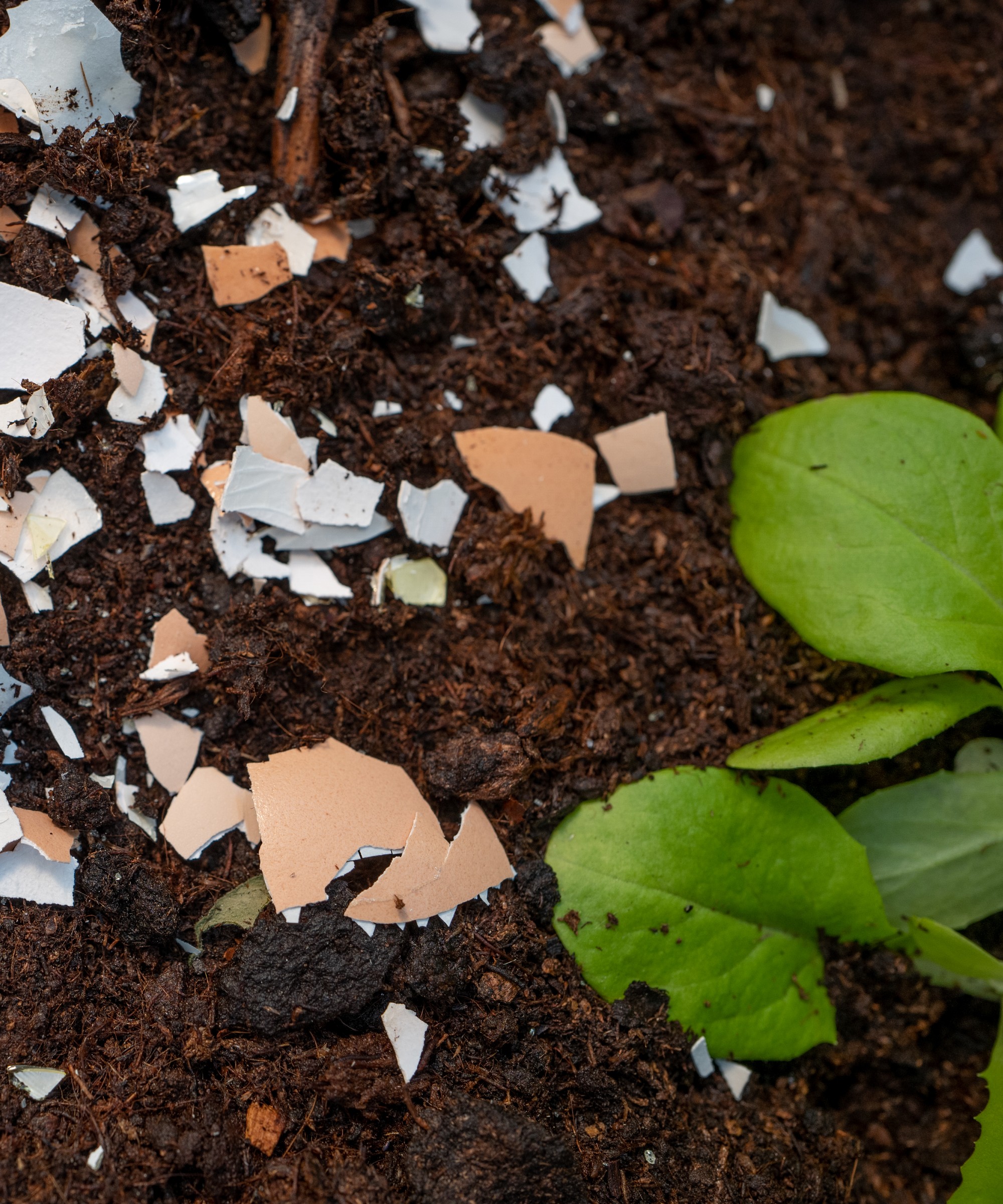
What happens when you put an egg in soil?
When you put an egg in soil, it will be broken down by microbes, Melody explains.
'This decomposition process begins with anaerobic bacteria breaking down the egg white and albumen. The yolk is more resistant to decomposition, but if it is left in the soil for longer than two weeks, it will also begin to decompose.'
Should I use whole raw egg or crushed eggshells?
Using a whole raw egg in the garden is a bit of a waste of an egg – all the nutrients needed for plants and/or wildlife are in the eggshells.
'Raw egg fertilizer may not be the best way to introduce calcium to your plants', writes Certified Urban Agriculturalist Bonnie L. Grant for Gardeningknowhow. Use the eggshells instead – and bake them to disinfect them if using to feed birds.

Anna is a professional writer and academic. She taught English Literature for several years before joining Future where she wrote for Real Homes, Homes & Gardens and Livingetc for four years. She is a regular contributor for Parade Home, BiggerPockets, and many other publications. In her spare time, Anna enjoys hiking and gardening.
-
 Do cleaning products expire? Professional cleaners warn time could make them ‘less effective, and in some cases, irritating to use’
Do cleaning products expire? Professional cleaners warn time could make them ‘less effective, and in some cases, irritating to use’For the best results, it pays to stay on top of the timeline of your cleaning products
By Chiana Dickson Published
-
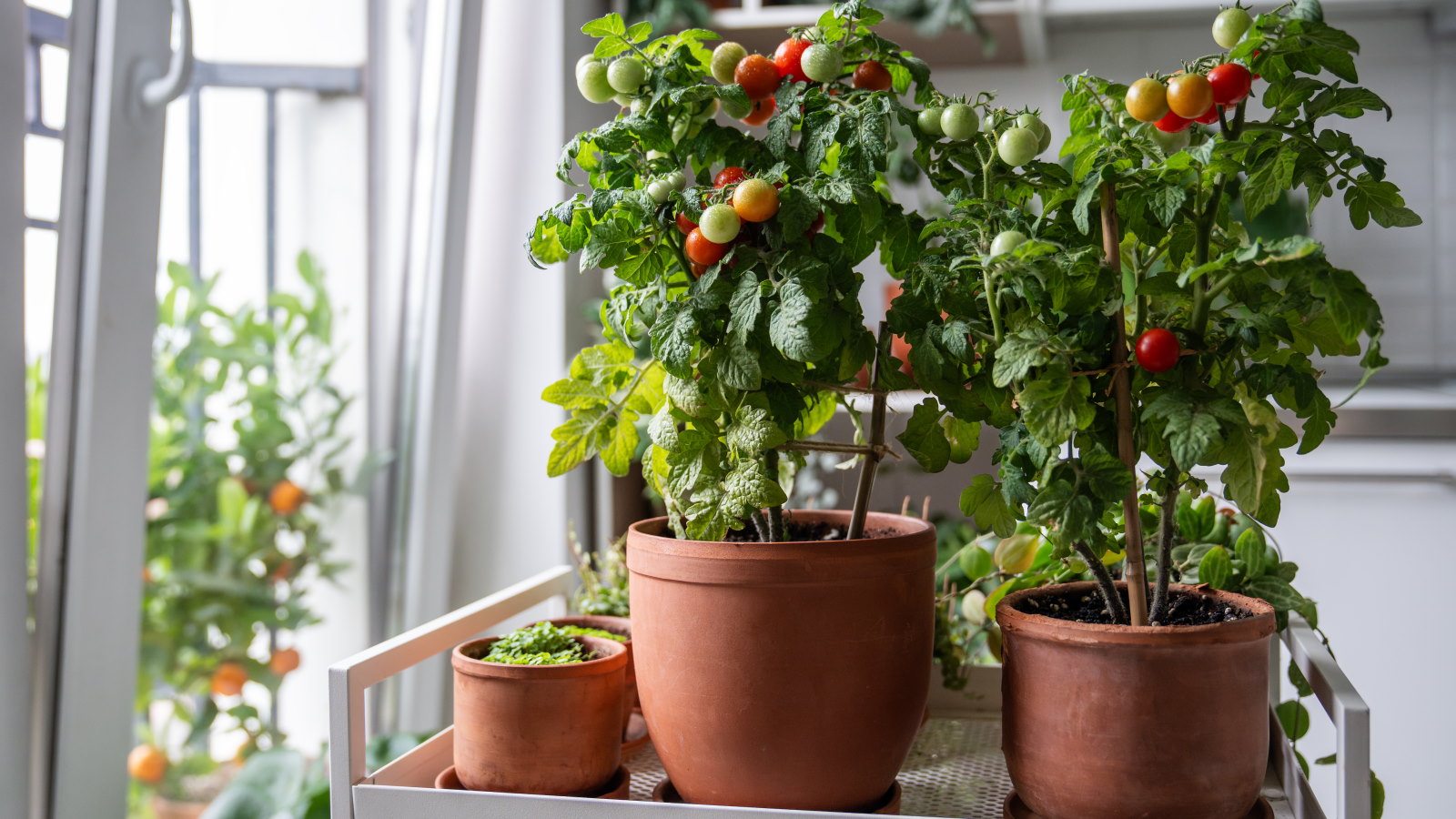 7 of the best tomatoes for growing in pots - expert growers pick their top varieties ideal for large harvests from containers
7 of the best tomatoes for growing in pots - expert growers pick their top varieties ideal for large harvests from containersYou can enjoy bumper homegrown harvests in small spaces
By Drew Swainston Published